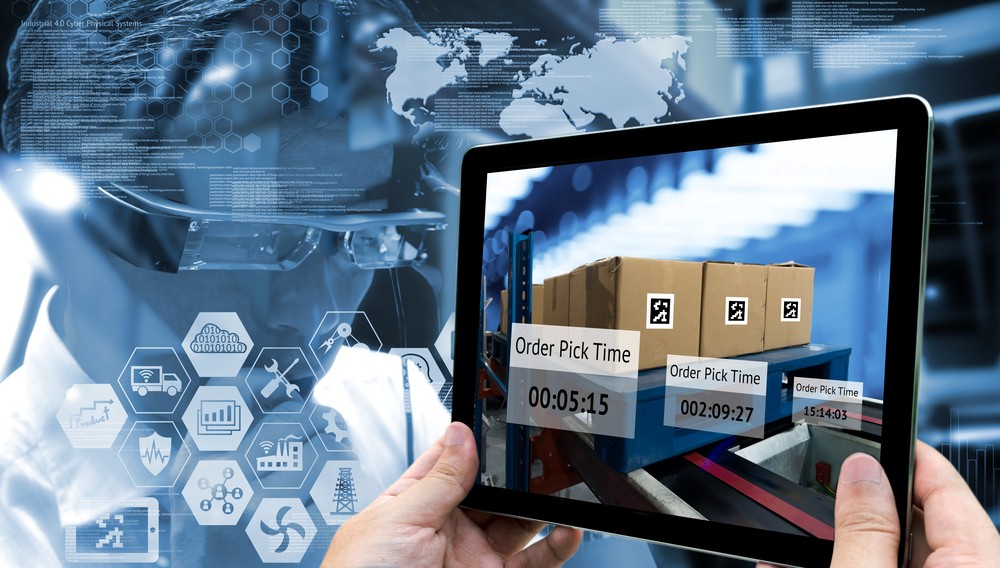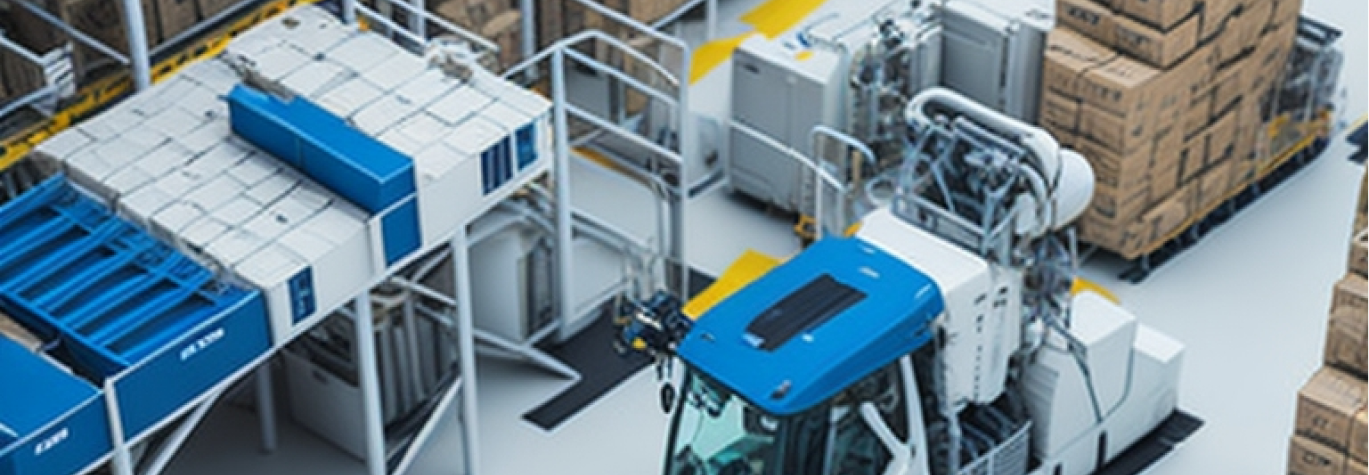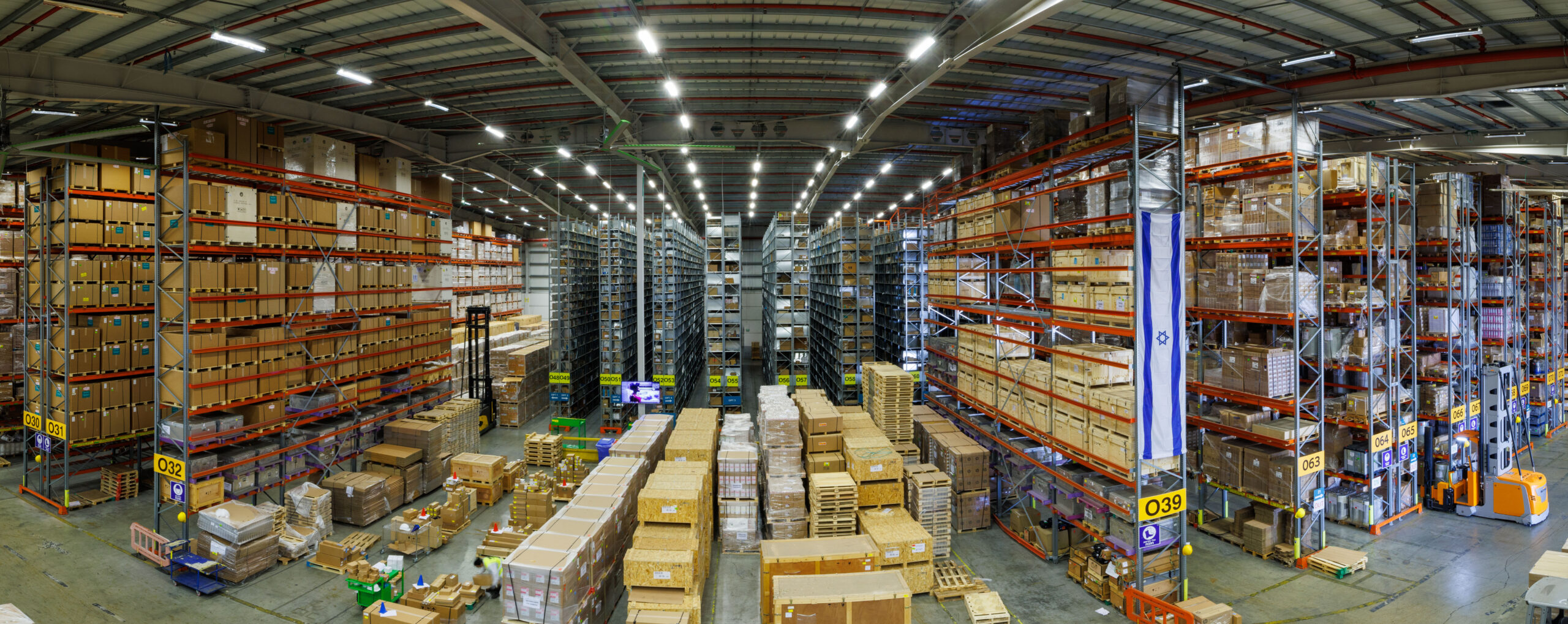Deployment of 5G Networks and Their Impact on the Supply Chain
In April 2019, South Korea launched the world’s first full-fledged 5G network, beating American company Verizon. According to the deputy president of Ericsson, by 2024, the 5G network will have coverage of 40% of the Earth’s surface and serve 1.5 billion people.

The next generation of cellular communication networks will be 20 times faster than the current one, and with data compression technologies, we will reach data transfer speeds we couldn’t even dream of. How will this change the entire management and consumer perception in the supply chain? Today, for example, refrigerators and cargo shipments are connected to trackers that report real-time location.
When the network becomes faster, not only will the reliability of reporting increase, but also the ability to connect trackers to specific products during shipment without burdening the data traffic. Yes, maybe in another 5-10 years, when you order something from ExpressX for $2, you will also be able to know its real-time location.
The demand for transparency throughout the supply chain is growing, and technology is required to provide solutions. The more connected devices there are, the more bandwidth will be needed.
Additionally, bandwidth affects the ability to store and process critical data in the shipping world – not only location but also temperature and air pressure, a critical aspect in controlled shipping. Although Korea surpassed the Americans, there is currently one small thing missing, and that is devices capable of communicating with 5G networks.
However, that will also arrive soon. Although in Israel, a home internet speed of 40 Mbps is considered an achievement, and there are still organizations that work with fax machines.
If you want to stay in control of new developments in the supply chain world, subscribe to our newsletter, and we will keep you updated!
![]()
![]()
![]()
When the network becomes faster, not only will the reliability of reporting increase, but also the ability to connect trackers to specific products during shipment without burdening the data traffic. Yes, maybe in another 5-10 years, when you order something from ExpressX for $2, you will also be able to know its real-time location.
The demand for transparency throughout the supply chain is growing, and technology is required to provide solutions. The more connected devices there are, the more bandwidth will be needed.
Additionally, bandwidth affects the ability to store and process critical data in the shipping world – not only location but also temperature and air pressure, a critical aspect in controlled shipping. Although Korea surpassed the Americans, there is currently one small thing missing, and that is devices capable of communicating with 5G networks.
However, that will also arrive soon. Although in Israel, a home internet speed of 40 Mbps is considered an achievement, and there are still organizations that work with fax machines.
If you want to stay in control of new developments in the supply chain world, subscribe to our newsletter, and we will keep you updated!
Related articles

Pep Guardiola, the coach of the world supply chain
With nearly 30 titles in 12 years of coaching and success rates of over 70%, it is hard to argue that Pep Guardiola is the greatest coach of our generation and one of the greatest of all time. It is clear that his success is not just due to talent and luck, but to a systematic approach that he instills in every club he joins. How does this relate to the supply chain? Well, it’s a method that allows for achieving nearly 100% reliability!
Transition from Fixed Expenses to Variable Expenses in Times of Crisis
A pharmaceutical importer I spoke with this week told me, “In the era of COVID-19, those who are smart enough to transition from fixed expenses to variable expenses will succeed.” He’s right. The coronavirus pandemic has created uncertainty in the international market and certainly in the Israeli market. “Take my industry, for example,” explained Ben Shichi. “Businesses that used to roll smoothly and manage fairly well suddenly started feeling cash flow pressure with the outbreak of the coronavirus crisis. Suddenly, there were delays in payments, shipments got stuck, but the expenses – what can you do, they keep piling up.”
Trade War and Cybersecurity - What is important to consider in the supply chain?
The intervention of the federal government in the American economy and the impact on free trade is not something that happens every day. However, in May of last year, in an unprecedented move, President Trump signed an executive order that allows the federal government to intervene and prevent American companies from buying communication equipment from foreign companies defined as a “national security risk.”
Blockchain technology is revolutionizing the supply chain
The supply chain consists of countless segments. Each link in the chain needs to function optimally on its own, but also interact with other links. When this doesn’t happen, the chain breaks and gets stuck. Blockchain technology, primarily associated with preserving and transferring money, has the capability to securely, safely, and advancedly connect all the links in the supply chain. The main advantage of blockchain technology is its ability to track, monitor, and record activities happening in different places and through different systems. Since the information is distributed and not stored in a single server, every activity is registered and updated in real-time for anyone with access to see. So how can blockchain be integrated into the supply chain?
Technology enabling transparency in the supply chain
The supply chain process involves multiple links, and the biggest challenge is that each link has its weak point. While each link has its own challenges, the issue of transparency and real-time tracking is likely a common problem for everyone. Just imagine how annoying and unbearable it would be if a coworker or software kept asking you every second, “Did it arrive? Did it arrive?” in order to stay updated in real time. But if there are bots that can communicate with each other, why not have them ask each other and automatically update themselves?
Rami Levy's Automatic Warehouse: Is this a partnership model that will change the retail sector?
To anyone interested, the announcement of Rami Levy establishing an automated logistics center in the heart of Tel Aviv (Shalom Tower) in collaboration with the startup company Fabric did not come as a surprise. Since opening his first supermarket in Talpiot in 1992, through the IPO on the Stock Exchange of his marketing chain in 2007, and up to the present point, the growth of his business has been exponential.
Cybersecurity Defense for the Supply Chain
In an interview with Stuart Madnick, an information security expert from MIT, he noted that most companies perceive cybersecurity defense in the supply chain as something that should only prevent malicious actors from infiltrating their systems. The problem with this perception is that it does not take into account the damages that can occur through authorized entry points, whether intentional or unintentional.
Globalization presents challenges and risks to the supply chain
Sometimes globalization seems like a pursued goal among companies. The variety of suppliers and the ability to engage in business globally seem infinite. You can buy cheap and sell (almost) anywhere in the world. Bonanza! However, globalization has brought countless new challenges and risks to companies.
During a crisis period, many businesses transition from fixed expenses to variable ones
A pharmaceutical importer I spoke with this week said to me, “In the era of COVID, those who are smart enough to shift from fixed expenses to variable expenses succeed.” The truth is, he is right. The COVID pandemic created uncertainty in the international market and certainly in the Israeli market as well. “Take my industry, for example,” explained Ben Shikhi, “businesses that used to roll and manage quite well suddenly started feeling cash flow pressure with the outbreak of the COVID crisis. Suddenly, there were payment delays, shipments got stuck, but the expenses – what can you do, they continue to accumulate.”
"Sabon" had to clear products from 36 branches
Inventory management and storage are challenging tasks for businesses, especially during times of crisis. It requires numerous coordination efforts, taking risks, significant financial investments, and a lot of manpower. In short, it’s a significant headache. Often, it seems that any internal attempt to streamline these processes is destined to fail. What can you do? Not all of us are logistics experts.
The Logistics Challenges in the E-commerce World
E-commerce store owners and importers are well aware of the challenges of the end-of-year sales carnival, especially regarding logistics, shipping, inventory management, and bureaucracy. It starts in the initial stage of product import, continues with shipping difficulties and delays that affect the customer experience. It turns out that the solution is much simpler than you might think, and here it is before you.
Elon Musk connects you to the smartphone!
Elon Musk, who has already earned the nickname “Donald Trump” of technology, doesn’t stop at developing and producing electric cars and clean energy. On July 16, 2019, Neuralink, a company founded in 2017 that Musk has invested $100 million in, announced the craziest, scariest, and most fascinating idea imaginable: connecting a chip to the brain with thousands of electrodes through invasive surgery performed by a robot. The company has already conducted 20 experiments on animals, with 87% of them being deemed successful.
Shipping Models and Spare Parts When Using a 3D Printer
Ray hears a mysterious voice in the field saying, “If you build it, he will come.” He doesn’t understand what the voice wants from him, and the environment begins to question his sanity until he realizes that his destiny in life is to build a baseball field.
7 Features for Effective Time Management in Orders and Deliveries
Anyone involved in the supply chain world knows the daily routine that follows – dozens of emails with purchase orders, customs clearance, and accumulated paperwork in the inbox.
Automatic Multi-Shuttles: Much More Than Storage Technology
Plato argued that “necessity is the mother of invention,” and although this famous quote is over 2,300 years old, it seems as relevant today as ever.
7 facts that should raise a red flag about information security in the supply chain:
The major information security company, Symantec, reports an increase in penetration attempts in the supply chain to target victim companies. Between 2016 and 2017, there was a 150% rise in attack attempts aimed at the supply chain. These attacks are often carried out through innocent-looking requests for “software updates.”
"Are you available to pick up from Allenby?"
Applications and technological interfaces that promote the sharing economy have transformed the business model of many companies from end to end. Applications like Uber and Gett have contributed to the gradual disappearance of taxi stands from the map, Airbnb has disrupted hotels, and food delivery apps like Wolt (currently operating in Tel Aviv) have significantly reduced waiting times.
Analog World = A World that is Fading Away
One of the biggest challenges in the process of digitization is integrating the workflows of the old world. Printed and offline documents, phone orders, and cumbersome bureaucracy deeply rooted in the organizational culture. This difficulty prevents many companies from even starting a partial digitization process in the supply chain. However, delaying the adoption of digital platforms is not a solution; it’s taking a step backward. Today’s digital platforms provide end-to-end solutions for all segments in the supply chain, both internally within the organization and in connecting with external suppliers and customers.
Servitz: Revolutionizing Service
In the fast-paced world of business, staying ahead of the competition requires innovative solutions and cutting-edge technologies. Fritz, a forward-thinking company, has recognized this need and established a dedicated digital department to drive innovation and digital development. One of their remarkable achievements is the development of Servitz, an app that has transformed the company’s service, logistics, operations, and business intelligence.
AI IN THE LOGISTIC WEARHOUSE INDUSTRY
In the near future, the logistics warehouse industry is set to undergo a revolutionary transformation with the widespread integration of artificial intelligence (AI). AI’s unparalleled ability to analyze vast amounts of data, learn from patterns, and make intelligent decisions will pave the way for unprecedented levels of efficiency and precision in warehouse operations.
Shapir Industries acquires Fritz's operations
Shapir Engineering and Industry, controlled by the Shapira brothers, announced yesterday to the stock exchange about the signing of an agreement to acquire the operations of Fritz Company from Yair Nuriel. It should be noted that in July 2021, it was reported that an option agreement was signed between the parties for the purchase of Fritz Company’s shares from Ang Asher, which holds Fritz Company’s shares. The company was valued at approximately 300 million shekels at that time.











